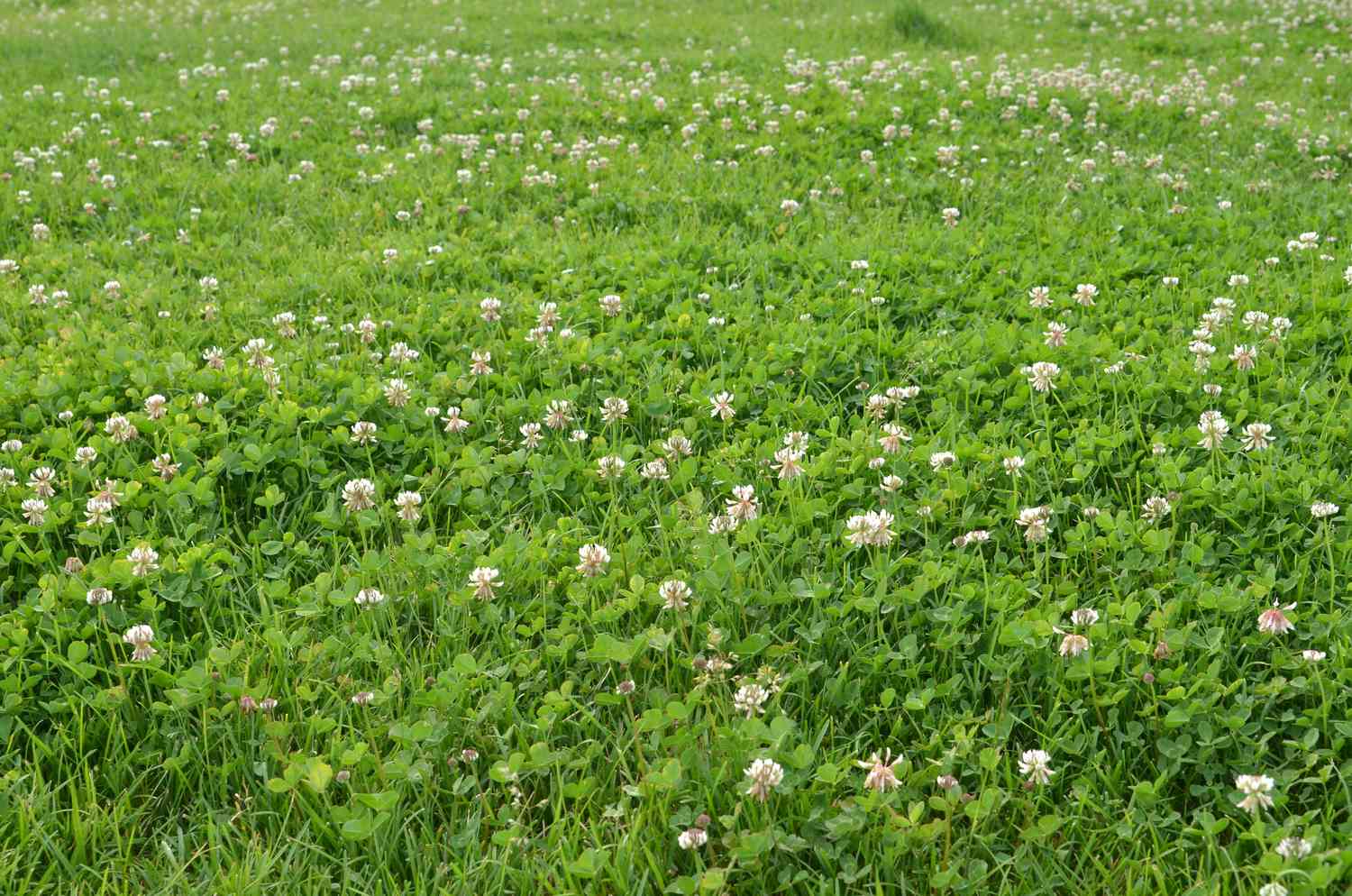Benefits of a Clover Lawn
A clover lawn is a type of lawn that incorporates clover plants along with traditional grasses. In recent years, there has been a growing interest in clover lawns due to their numerous benefits. This article will explore the advantages of having a clover lawn and why it can be a great alternative to traditional grass lawns.
Drought Resistance
One of the key benefits of a clover lawn is its exceptional drought resistance. Unlike traditional grass lawns that require frequent watering to stay green, clover lawns have deep root systems that enable them to withstand dry periods. This makes them an ideal choice for regions with limited water resources or areas prone to drought.
Low Maintenance
Another advantage of a clover lawn is its low maintenance requirements. Clover is a hardy plant that naturally suppresses weed growth, reducing the need for herbicides. Additionally, clover lawns do not require frequent mowing as they only grow to a certain height. This can save homeowners both time and money on lawn maintenance.
Nitrogen Fixation
Clover is a nitrogen-fixing plant, meaning it can convert atmospheric nitrogen into a form that is usable by other plants. This natural process helps to enrich the soil with nitrogen, an essential nutrient for plant growth. As a result, clover lawns can improve the overall health and fertility of the soil, reducing the need for synthetic fertilizers.
Environmental Benefits
Clover lawns offer various environmental benefits. Firstly, they require fewer chemical inputs compared to traditional grass lawns, reducing the potential for water pollution. Additionally, clover lawns attract beneficial insects such as bees and butterflies, contributing to the overall biodiversity of the area. The absence of chemical fertilizers and pesticides also makes clover lawns a safer option for children and pets.
Resilience
Clover lawns are known for their resilience and ability to withstand heavy foot traffic. Unlike grass lawns that can become easily damaged or worn out, clover lawns have a dense and robust structure that can bounce back from heavy use. This makes them an excellent choice for areas where children and pets frequently play or for high-traffic areas such as parks or schools.

FAQs about the Benefits of a Clover Lawn
1. What are the advantages of having a clover lawn?
The benefits of a clover lawn include natural nitrogen fixation, reduced water requirements, and resistance to pests and diseases.
2. How does clover help with nitrogen fixation?
Clover has a symbiotic relationship with bacteria that can convert atmospheric nitrogen into a usable form for plants, enriching the soil naturally.
3. Can a clover lawn reduce water usage?
Yes, clover has a deep root system that can access water from lower soil layers, reducing the need for frequent watering compared to traditional grass lawns.
4. Are clover lawns resistant to pests?
Clover lawns are generally more resistant to pests like grubs, chinchbugs, and armyworms, reducing the need for chemical pesticides.
5. Do clover lawns require less maintenance?
Yes, clover lawns tend to require less maintenance as they grow more slowly than traditional grass lawns and can withstand mowing at higher heights.
6. Are clover lawns suitable for areas with shade?
Yes, clover lawns can tolerate partial shade, making them a great option for areas with less sunlight.
7. Can clover lawns attract bees?
Yes, clover flowers are a favorite food source for bees, so having a clover lawn can help support pollinators and promote biodiversity.
8. Do clover lawns stay green during droughts?
Compared to traditional grass lawns, clover lawns have better drought tolerance and can stay green even during dry periods.
9. Can clover lawns improve soil health?
Yes, clover lawns can improve soil health by enhancing its structure, increasing organic matter content, and promoting beneficial microbial activity.
10. Are clover lawns suitable for high-traffic areas?
Clover lawns can handle moderate foot traffic, but they may not withstand heavy usage as well as some traditional grass species.
In conclusion, a clover lawn offers numerous benefits that make it a desirable alternative to traditional grass lawns. Its drought resistance, low maintenance requirements, nitrogen fixation capabilities, environmental benefits, and resilience make it an excellent choice for homeowners and communities alike. Consider embracing a clover lawn to enjoy a beautiful and sustainable landscape.



